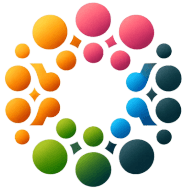6 Positive Outcomes from Dei Rollbacks: What We Learned
Recent changes in corporate diversity, equity, and inclusion (DEI) policies have sparked unexpected positive outcomes. From the emergence of organic employee-led initiatives to streamlined recruitment processes focusing on skills, these shifts have reshaped workplace dynamics. This article explores six key areas where DEI rollbacks have led to surprising improvements in workplace culture and effectiveness.
- Open Dialogue Sparks Inclusive Employee Resource Group
- Merit-Based Recognition Fosters Individual Excellence
- Shared Goals Unite Employees Across Departments
- Skills-Focused Hiring Streamlines Recruitment Process
- Organic Cross-Cultural Learning Enhances Workplace Understanding
- Grassroots Diversity Initiatives Drive Authentic Change
Open Dialogue Sparks Inclusive Employee Resource Group
Yes, I witnessed a positive shift during a DEI rollback at a previous company, though it came with challenges. Initially, the rollback led to confusion and frustration, but it also sparked an open dialogue about why DEI initiatives are important and how they can be better integrated into the company's culture. One significant opportunity that emerged was the creation of a more inclusive employee resource group (ERG) that focused on bridging gaps in communication and understanding. While the rollback led to setbacks in formal programs, the ERG allowed employees to share personal experiences, fostering stronger connections. This experience shifted my perspective, making me realize that, even in times of rollback, it's crucial to keep the conversation going and find alternative ways to drive inclusivity. The key takeaway for me was that DEI efforts can evolve in unexpected ways when there's a genuine commitment to progress.

Merit-Based Recognition Fosters Individual Excellence
DEI rollbacks have led to an increased focus on individual merit-based recognition in many workplaces. This shift has encouraged employees to showcase their unique skills and achievements, regardless of their background. Companies have started to implement more objective performance evaluation systems, which has resulted in a fairer distribution of rewards and promotions. This approach has motivated employees to excel in their roles and take on new challenges.
The emphasis on individual merit has also fostered a sense of personal responsibility and accountability among team members. It's important for organizations to continue refining their merit-based systems to ensure they remain unbiased and effective. Employees should take this opportunity to highlight their accomplishments and seek recognition for their hard work.
Shared Goals Unite Employees Across Departments
Enhanced workplace unity through shared goals has emerged as a positive outcome of DEI rollbacks. Instead of focusing on differences, companies have shifted their attention to common objectives that bring employees together. This approach has led to increased collaboration and teamwork across departments and hierarchies. Employees now find themselves working side by side with colleagues they might not have interacted with before, breaking down invisible barriers.
The emphasis on shared goals has also improved communication and mutual understanding among team members. This unity has created a more positive and productive work environment for everyone involved. Organizations should continue to emphasize shared goals and encourage employees to actively participate in cross-functional projects.
Skills-Focused Hiring Streamlines Recruitment Process
Streamlined hiring processes emphasizing skills over demographics have become more prevalent following DEI rollbacks. Companies are now focusing on candidates' abilities and experiences rather than meeting specific diversity quotas. This approach has led to a more efficient recruitment process, with job descriptions highlighting essential skills and qualifications. Interviews and assessments have been redesigned to better evaluate a candidate's potential contribution to the organization.
As a result, companies are building teams based on complementary skill sets and shared vision. This shift has also encouraged job seekers to focus on developing relevant skills and experiences. Employers should continue to refine their hiring practices to ensure they attract and select the most qualified candidates for each role.
Organic Cross-Cultural Learning Enhances Workplace Understanding
The organic development of cross-cultural learning opportunities has been an unexpected benefit of DEI rollbacks. Without formal diversity programs, employees have taken it upon themselves to learn about their colleagues' backgrounds and experiences. This natural curiosity has led to more authentic and meaningful interactions among team members. Informal gatherings, such as lunch-and-learn sessions or after-work social events, have become platforms for cultural exchange.
These organic interactions have fostered a deeper understanding and appreciation of diverse perspectives within the workplace. The resulting cultural awareness has improved communication and collaboration among team members. Employees should be encouraged to initiate and participate in these organic cross-cultural learning opportunities to continue fostering a more inclusive work environment.
Grassroots Diversity Initiatives Drive Authentic Change
The emergence of authentic, grassroots diversity initiatives has been a positive outcome of DEI rollbacks. Instead of top-down diversity programs, employees have started organizing their own initiatives based on genuine interest and need. These grassroots efforts have resulted in more engaged and committed participation from team members. Employee-led groups have formed around shared interests or experiences, creating safe spaces for discussion and support.
These initiatives have often addressed specific challenges or opportunities within the organization more effectively than previous formal programs. The authenticity of these grassroots efforts has led to more meaningful change and improved workplace culture. Employees should be encouraged to propose and lead diversity initiatives that they feel passionate about, with support from management when needed.

